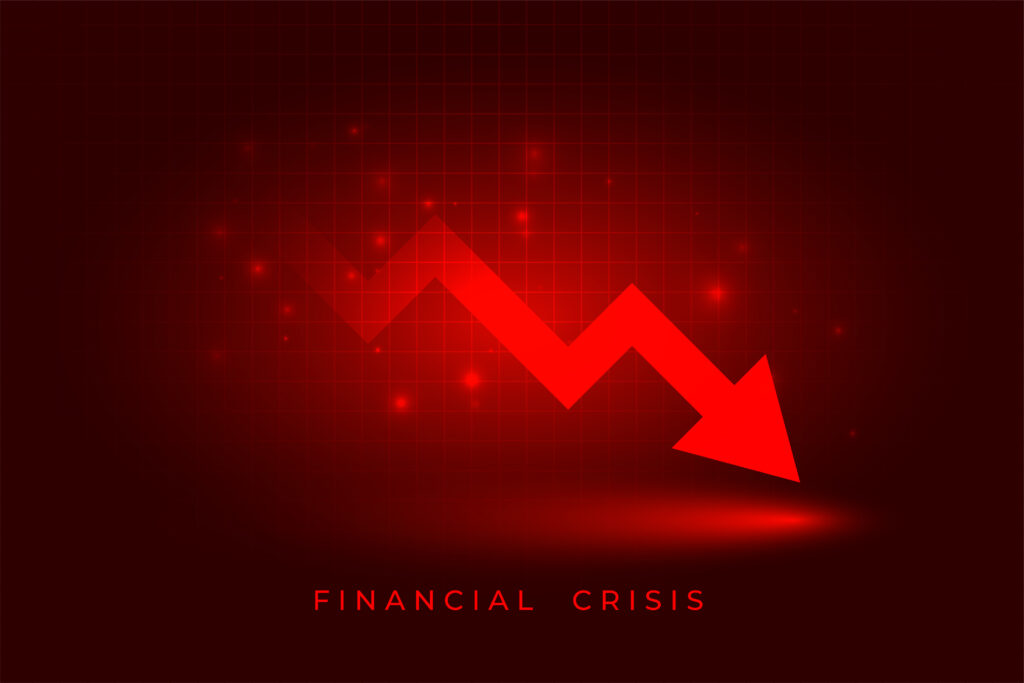As we move deeper into 2025, economists, investors, and everyday consumers are facing growing concerns about a possible global recession. With markets fluctuating, inflation proving stubborn, and geopolitical tensions adding fuel to economic instability, the world is beginning to wonder: Are we heading into a full-scale recession—or are we already in one?
In this in-depth look, we break down the key warning signs, explore the potential causes behind the downturn, and offer insights on how individuals and businesses can navigate these uncertain times.
🔍 What Is a Recession?
A recession is typically defined as two consecutive quarters of negative GDP growth. But in real terms, it’s more than just numbers—it’s job losses, shrinking paychecks, failing businesses, and strained households.
The signs of a recession include:
- Rising unemployment
- Decreased consumer spending
- Slowed industrial production
- Falling stock markets
- Reduced lending and credit access
According to the latest data from several major economies, many of these signs are already visible.
⚠️ The Warning Signs in 2025
1. Stock Market Volatility
Markets around the world have been swinging wildly, with the S&P 500, FTSE 100, and DAX experiencing significant drops in Q1 2025. Investors are reacting to:
- Uncertain interest rate policies
- Rising energy prices
- Ongoing geopolitical conflicts, especially in Eastern Europe and the Middle East
2. Consumer Spending Is Slowing
Despite a strong holiday shopping season in 2024, Q1 data shows a sharp decline in discretionary spending. High inflation has reduced purchasing power across the U.S., Europe, and beyond.
3. Corporate Layoffs Are Accelerating
Major tech and retail companies—such as Amazon, Meta, and H&M—have already announced mass layoffs, citing reduced demand and the need to cut costs.
4. Stubborn Inflation and High Interest Rates
Although central banks have tried to tame inflation through rate hikes, core inflation remains above targets in most Western economies. These higher interest rates are now hurting borrowing, stalling housing markets, and cooling business investment.
🌍 A Global Issue
The downturn isn’t isolated to one region.
- Europe is grappling with high energy costs, stagnant wages, and declining manufacturing output.
- The U.S. faces a cooling job market and a fragile banking sector still recovering from regional collapses in 2023–2024.
- China’s recovery post-COVID has been uneven, affecting global supply chains and trade.
Developing countries are especially vulnerable, as debt repayment burdens rise and foreign investment pulls back.
🧠 Causes Behind the Downturn
Several complex factors have collided in 2025:
✅ 1. Lag from Pandemic-Era Stimulus
Governments worldwide injected trillions into their economies between 2020–2022. While this kept economies afloat then, it’s now being blamed for sustained inflation and artificial growth that’s starting to correct.
✅ 2. Supply Chain Disruptions
Ongoing logistical issues, political instability in key shipping lanes (such as the Red Sea), and a resurgence of protectionism have disrupted global trade.
✅ 3. Climate Shocks
Extreme weather events—like droughts in North America and floods in Southeast Asia—have hurt agriculture and infrastructure, leading to price spikes and slower economic activity.
✅ 4. Technological Disruption
While AI and automation bring efficiency, they are also displacing jobs faster than economies can adapt—especially in white-collar sectors.
💡 How to Prepare as an Individual or Business
Whether we’re in a technical recession or not, the economic headwinds are real. Here’s how to brace for impact:
For Individuals:
- Reassess your budget: Cut non-essential spending.
- Diversify income: Consider freelancing, remote gigs, or upskilling for in-demand roles (e.g. cybersecurity, AI operations).
- Build an emergency fund: 3–6 months of expenses can offer peace of mind.
- Avoid high-interest debt: Pay down credit cards or shift to lower-rate consolidation loans.
For Businesses:
- Conserve cash flow: Delay major investments and optimize operations.
- Re-evaluate pricing and value: Consumers are more price-sensitive—offer tiered solutions or discounts without sacrificing quality.
- Double down on digital marketing: Organic growth through SEO, social media, and email is more cost-effective than paid ads.
- Strengthen supplier relationships: Secure your supply chain now to prevent costly disruptions.
📊 What Experts Say
Leading economists from institutions like the IMF, World Bank, and Goldman Sachs have mixed predictions:
- Some warn that a mild recession is already underway.
- Others suggest we may avoid the worst through government intervention and AI-led innovation.
But most agree: The path ahead in 2025 will be rocky.
📌 Conclusion
Whether this is the beginning of a global recession or a necessary market correction, one thing is clear: the economic environment is changing. Businesses and individuals alike must adapt to uncertainty, think long-term, and stay informed.



